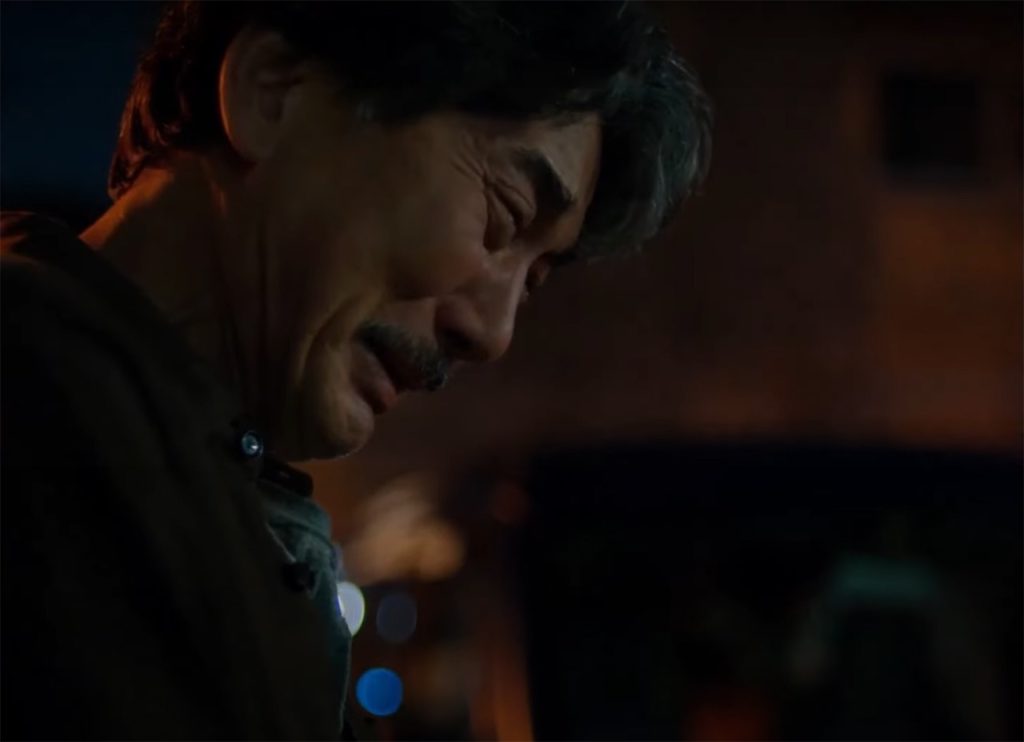The 2025 Japan Film Festival, more popularly regarded as Eigasai, ends their run with a screening of Perfect Days to a full house and a resounding success. It perfectly captures the magic of Japanese life and values embedded in their daily lives and is the best film to cap the run.
Perfect Days tells the story of a normal Japanese man named Hirayama (Koji Yakusho) as he goes on his daily tasks as a public toilet cleaner in Shibuya. The story conveys, in intricate detail, his routine from the moment he wakes up to when he retires for the day. Hirayama listens to cassette tapes and cleans toilets for most of the two-hour run time of the film.

On the surface, the plot is thin and appears uninspired. After all, there may be nothing interesting about following a toilet cleaner around Shibuya. However, it is in the little details, and the masterful execution of Director Wim Wenders, that makes this film shine. It is possibly the only film that spends an inordinate amount of time focusing only on the basics, as we watch Hirayama get ready for work, clean one toilet after another, have lunch and dinner, take a bath, and read a book to sleep, only for him to do everything again the next day. The film in this first 15-20 minutes puts the audience in a trance, as though by unexplainable magic, to quietly watch as an ordinary old man goes by his day. As I write this review, I know that my words will fail to explain how the act of observing a stranger’s routine, something I will never find amusing to do in real life, is made captivating by this film. And yet Perfect Days succeeded to silence the cinema and grasped everybody’s attention, hook, line and sinker.
In this current age where everything moves fast, and people cannot go through five minutes without checking their phones, the film appears to be asking the audience to take a deep breath and to slow down. The camera follows Hirayama during his lunch breaks in a nearby park, admiring the trees and taking pictures of “komorebi”, or the light shining through the leaves. In another instance, we follow Hirayama as he relaxes and takes a bath in a local onsen. Coming from a world that is high-paced and stressful, a mixed feeling of guilt and envy rushes through my heart witnessing the satisfaction that actor Yakusho portrays immersed in the most forgettable activities.
The film also gifts us the idea that there is wonder in the small details in between and blended in our daily lives, in the actions we take, and in the world we live in. Hirayama, as a toilet cleaner, takes pride in his ability to commit to his job, arriving promptly and performing excellently, despite the fact that society looks down on his line of work. The film does not skirt away from this idea, showing multiple instances where interactions of people with Hirayama clearly show that he is either invisible or inferior to everyone else he interacts with in Shibuya.
Throughout the course of the film, Hirayama interacts with several characters, altering his routine, and causing him to contemplate about the life he lives, which the story cleverly distinguishes as divergent from the lives led by everyone else. It was as though the pace of his life does not rush to be ahead, and instead appreciates the now. Certain film choices further hone in on this concept, such as the deliberate decision of Director Wenders to shoot the film on a 4:3 aspect ratio, to effectively capture the details of Hirayama’s life as a person that still uses a black and white pocket film camera, a flip phone, and cassette tapes. The 4:3 aspect ratio, in fact, was a brilliant film choice because it also inadvertently conveyed the daily life of Hirayama, being in cramped toilets all day, and also to an extent, being locked in the prison of his own routine.
While Hirayama is shown smiling for the majority of the film, happiness, however, is different from contentment. Yakusho’s brilliance as an actor is displayed in fascinating moments wherein, without dialogue, the audience can see from the emotions and behavior of Hirayama a range of emotions, from despair to happiness, possibly sadness, frustration, and then eventually settling on contentment. Yakusho’s command on conveying emotions with no dialogue is a magnificent feat and cements him as one of the best Japanese actors in the industry, and his range was in full display as Hirayama. It is because of this that it would appear false to assume happiness in his life. All the people he meets in the film are fleeting and towards the end, the story snaps back to following Hirayama, alone, starting his routine as a toilet cleaner once more. If happiness is an essential ingredient to having a perfect day, then the film title may be a misnomer. But it is in this complex thought-provocation that Wenders’ work squarely lands, where the audience is dared to look inwards and to examine the life they live.
Perfect Days is one of the most refreshing, beautiful, and special films around. It managed to convey so much depth in a single character despite having barely a dozen lines of dialogue, and with little to no progression on the story beyond the single premise that there is contentment that can be found in the mundane.
Score: 10/10
Palabas Tayo would like to express our sincere appreciation to Shangri-La Plaza and the Japan Foundation Manila for the access to this film screening.
Click here for more stories like this. You may also follow and subscribe to our social media accounts: Facebook, YouTube, Instagram, TikTok, X, and Kumu.





















